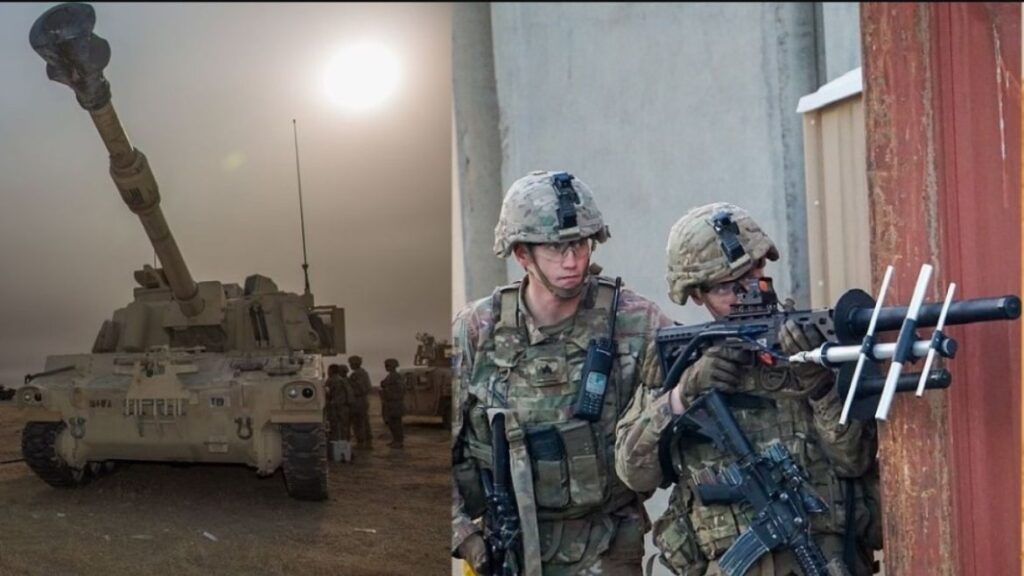The United States has withdrawn from Afghanistan, plunging Kabul into chaos. The current US withdrawal is being compared to other failed interventions such as Vietnam. However, it should be remembered that there have been instances when the US interventions were successful. For example, the US engagement of Europe after the Second World War and its policies, such as the Marshal plan, were very successful. Similarly, the reconstruction of post-War Japan can be cited as another example of successful intervention.
The US intervenes because it has significant capabilities to intervene in different parts of the world. There is practically no other country that can deploy troops in distant parts of the world on very short notice. Further, until recently, large constituencies in the US were willing to countenance an external intervention as long as it was presented as an attempt to protect human rights/democracy or to save the world from impending danger and disorder. Sometimes, there are demands from various members of the international community for the US intervention to address a humanitarian crisis. For instance, as the chaos in Kabul unfolded, there are demands that the US redeploy to protect ordinary masses from the impending violence of the Taliban.
However, not all US interventions are successful. A common factor for the failure of the US intervention in Vietnam, Iraq and Afghanistan, was the presence of porous borders and constant supply of weapons from an external actor. The Soviet Union was able to supply weapons to the North Vietnamese forces. Iran was able to support various militia groups in Iraq. In Afghanistan, while claiming to work with the US, Pakistan provided refuge and armed the Taliban. Pakistan has demonstrated that hunting with hounds and running with hares can be an art form. Overall, the ability of an external actor to muddy waters and the inability of the US to cut off the external supply lines of insurgent groups created conditions for the failure of the US interventions.
Further, in the case of Iraq, the US intervention started with an objective to identify/remove non-existing weapons of mass destruction. A military intervention based on faulty intelligence resulted in considerable embarrassment and generated suspicions regarding the Iraq mission. Subsequently, nation-building was added to the objectives, which was an amorphous goal to pursue. The military was deployed to achieve political objectives and generate political consensus at the grassroots, for which the defences forces were not trained. Thus, the absence of clearly defined military objectives and ever-expanding objectives contributed to the failure of US intervention in Iraq.
When the United States intervened in Afghanistan, the conditions for a successful mission were very much in place. The overthrow of the Taliban received considerable support from ordinary people. However, the US, instead of focusing on completing its mission in Afghanistan, ventured into Iraq. As a consequence, the United States conducted two massive interventions in Afghanistan and Iraq simultaneously. Even for a superpower with considerable resources, two wars in distant countries mean that the political leadership in the US could not give full attention to get the job done. Furthermore, the US leadership was publicly declaring a timetable for the withdrawal of their forces from Afghanistan. So all that the Taliban had to do was conserve their energy and launch an onslaught after the US withdrawal.
In both Iraq and Afghanistan, the US had could not put together a genuine coalition of various ethnic groups to govern. As a consequence, governance frameworks were undermined by factionalism which in turn contributed to corruption. The moment the US announced the withdrawal, a push by the insurgents prompted the collapse of the governance frameworks.
On the other hand, the track record of other major powers has not been impressive either. For example, the Soviet intervention in Afghanistan was a spectacular failure and, in a way, also contributed to the fall of the Soviet Union. On the other hand, the interventions in Iraq and Afghanistan proved to be very costly, yet they have not undermined the foundations of the USA economy.
